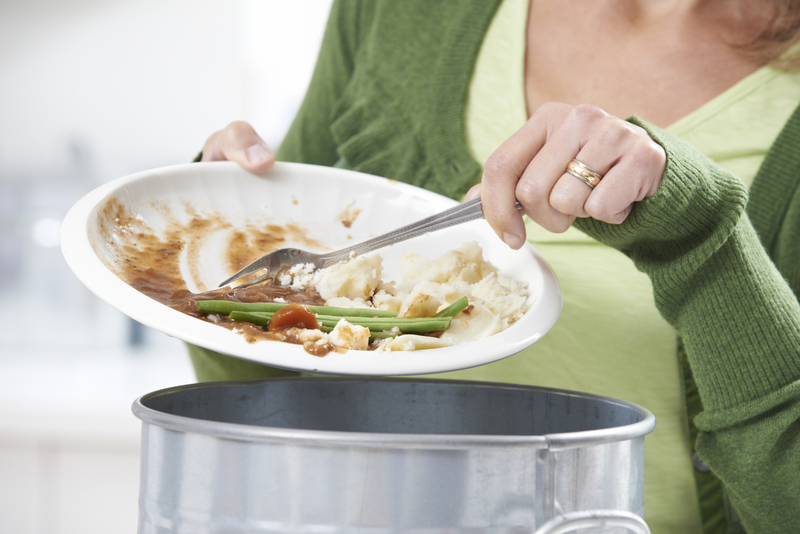Recycling Rules: What to Do With Pots and Pans That Can't Be Fixed
Have you ever opened your kitchen cabinet to find a stack of warped, scratched, or unusable pots and pans gathering dust? Pots and pans are kitchen essentials, but over time, their nonstick coatings wear out, handles break off, or the metal becomes too damaged to use. What should you do with old cookware that can't be repaired or donated? Tossing them in the trash seems wasteful, but are they recyclable? In this comprehensive guide, we'll explore what to do with broken pots and pans, how to recycle old cookware, and creative alternatives for giving your used kitchenware a second life.
Understanding the Challenge: Why Pots and Pans Are Tricky to Recycle
Unlike plastic food containers or aluminum cans, recycling rules for pots and pans aren't always clear. Many types of cookware are made from blended materials including metals, nonstick alternatives, plastic or wooden handles, and glass lids. Each of these components can require a different recycling process.
- Aluminum, stainless steel, and copper are the most common metals in cookware.
- Cookware might also be coated with nonstick substances like Teflon (PTFE) or ceramics.
- Handles may be made of plastic, silicone, rubber, or even wood.
Local recycling programs sometimes accept scrap metal, but may reject pots and pans with non-metal components or coatings. That's why tossing these items into your curbside recycling bin is usually not the best solution.

General Guidelines: When Pots and Pans Can't Be Fixed
If you're trying to dispose of used cookware, first ask yourself: can it be repaired? Tightening handles, de-rusting, or deep cleaning often extends the life of your favorite pot. But if your cookware is warped, severely scratched, missing important pieces, or covered in damaged nonstick coating, it's time to move on. Here are your main options:
- Recycle through appropriate facilities.
- Donate if the item is still usable (some charities accept gently used pans).
- Repurpose or upcycle for home or garden projects.
- Proper disposal if none of the above is possible.
Let's go deeper into each solution for old pots and pans.
How to Recycle Old Pots and Pans
The most environmentally friendly way to get rid of unusable pots and pans is to recycle them. However, cookware recycling isn't as simple as tossing an aluminum can in your bin. Follow these steps for proper disposal:
1. Identify the Material
First, check what your cookware is made of. The most recyclable types are:
- Stainless steel
- Aluminum
- Copper
- Cast iron
Nonstick cookware or those with rubber/plastic/wood handles are more complicated. The external coatings can contaminate scrap metal recycling.
2. Remove Non-Metal Parts
If possible, detach any plastic or wooden handles before recycling. Most scrapyards or recycling centers only want pure metal.
3. Find a Scrap Metal Recycling Facility
Don't place pots and pans in your curbside recycling bin! Most municipal recycling programs do not accept kitchenware for regular pickup because of size, shape, and material issues.
- Locate a local scrapyard or metal recycling center. Use online maps or search for "scrap metal recycling near me."
- Check if your town's household waste collection center has a bin for scrap metal or a specific area for kitchenware.
4. Ask About Accepted Types and Conditions
Call ahead or check online to be sure they accept your type of cookware. Some will reject nonstick pans due to the PTFE or ceramic coating, as these can contaminate metal recycling streams.
5. Drop Off Your Cookware
When in doubt, bring the items to the facility or event and ask staff how to sort them. Some locations offer special electronics and metal collection events where old kitchenware can be accepted.
Can You Put Pots and Pans in the Blue Recycling Bin?
- Generally, no.
- Pots and pans can damage recycling machinery due to their shape and weight.
- Nonstick coatings, food residue, and mixed materials contaminate the recycling process.
How About Nonstick Cookware?
Broken or worn nonstick pans are especially challenging. Popular coatings like PTFE (Teflon) can release toxic chemicals if overheated and are not recyclable in standard facilities. Here's what to do:
- If the pan is in good condition (no scratches or peeling), consider donating (see below).
- If damaged, *remove handles and lids*, then check with your local scrap metal dealer if they accept nonstick-coated pans. Some do, some don't.
- Do not place in regular recycling bins.
- If no other option, dispose in regular household trash (as a last resort).
Can Old Pots and Pans Be Donated?
If your unwanted cookware is still usable--no deep scratches, warps, or missing pieces--consider donation to local charities, food banks, thrift stores, or shelters. Organizations that might accept old pots, pans, and cookware include:
- Goodwill
- Habitat for Humanity ReStores
- Local homeless or women's shelters
- Community centers or freecycle groups
*Important: Most places will not take cookware with broken handles, warped bodies, or flaking nonstick. Call ahead and be honest about the condition.*
Creative Repurposing: Upcycling Old Cookware
Not all old pots and pans need to leave your home. With a little creativity, you can repurpose or upcycle worn cookware into fun and functional new items:
- Planters: Turn deep pots or pans into quirky herb garden planters for your kitchen or patio. Paint them for added flair!
- Bird Baths or Feeders: A shallow pan or saute skillet can become a unique spot for feathered friends in your garden.
- Storage: Old colanders make great holders for utensils or fruits and vegetables.
- Wall Art: Arrange shiny lids or copper pans on a kitchen wall for vintage decor.
- Candle Holders: Mini pans or molds are perfect for DIY candle-making projects.
*Tip: Remove any hazardous material (like peeling nonstick coating) before repurposing for home use.*
When to Throw Out Old Pots and Pans
Sometimes, even recycling or upcycling isn't an option. When should you put your pots and pans in the trash?
- The pan is severely warped, cracked, or rusted through.
- Nonstick coating is peeling or flaking off (can contaminate food or soil).
- Handles are broken or missing, making the cookware unsafe to use or repurpose.
- Your local recycling centers reject the type or material of the pan.
*Dispose of hazardous cookware responsibly. Wrap sharp edges before placing in your bin to prevent injury to sanitation workers.*
Specialty Cookware: Cast Iron, Copper, and Glass
Cast Iron
Cast iron pans last for generations when properly restored, but if one is cracked or rusted beyond repair:
- Bring to a scrap metal recycler--they are valuable for repurposing.
- Consider using as a doorstop, paperweight, or rustic planter.
Copper
Copper cookware is prized in metal recycling! Try selling or donating unless it is completely destroyed.
Glass and Ceramic Cookware (Pyrex, etc.)
Most curbside programs do not recycle glass bakeware or ceramic cookware. These items have different melting points than regular glass and can ruin recycling batches. If unbroken, consider donation. If damaged, dispose in trash--wrap carefully.
Frequently Asked Questions About Recycling Old Cookware
Is there a recycling program for cookware from major brands?
Some brands offer recycling or trade-in programs for their own products. For example, certain high-end kitchen brands or stores occasionally host cookware recycling events. Always check with manufacturers for possible return or recycling campaigns.
Can you put pans in the dishwasher before recycling?
It's a good idea to clean your items before recycling to remove grease and food debris, but you do not need to fully restore them. Handle cleaning based on your recycling center's guidelines.
Can I sell old pots and pans for scrap?
Yes, but only if the metal is valuable (copper, cast iron, aluminum, stainless steel) and nonstick coatings/handles are removed. Scrap values vary, but selling is an option for large quantities.

Summary: Recycling Rules for Pots and Pans
- Don't put old cookware in your regular recycling bin. Find a local scrap metal recycler or collection event.
- Remove non-metal parts and clean your items.
- Donate only if the cookware is in safe, usable condition.
- Upcycle creatively if recycling/donation isn't possible.
- Dispose responsibly as a last resort, especially if damaged or made from non-recyclable materials.
Additional Resources
Recycling pots and pans that can't be fixed can seem overwhelming, but a little effort goes a long way in keeping waste out of landfills. The next time you retire your favorite frying pan, remember: recycling, donating, or upcycling are always better than tossing them in the trash!
